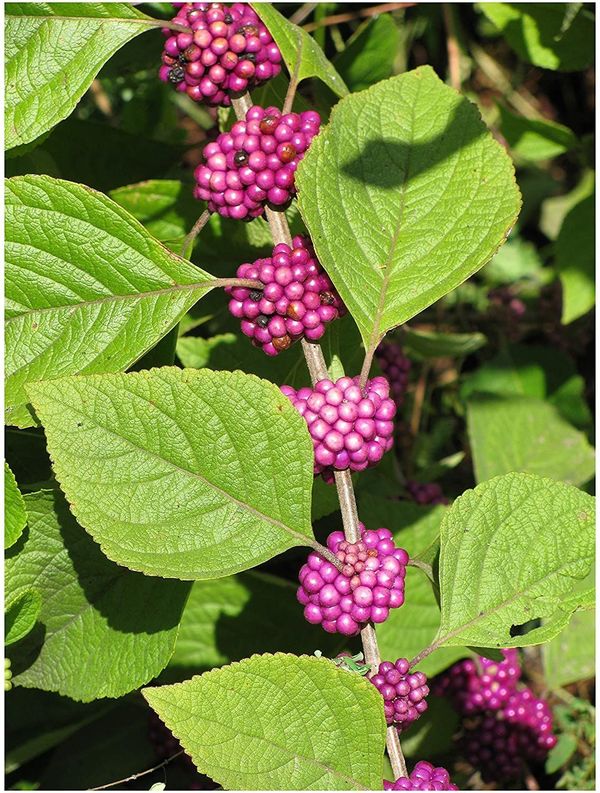

Christian Melander, George & Winifred Clark Professor of Chemistry & Biochemistry, and Roberta Melander, Research Associate Professor, with Professor Cassandra Quave and colleagues from Emory University, have reported new research showing that an extract from the American beautyberry plant increases the efficacy of certain antibiotics in the treatment of methicillin-resistant Staphylococcus aureus (MRSA). The work was published in ACS Infectious Diseases.
Growing bacterial resistance to antibiotics is a significant concern in modern healthcare. One pathway to addressing this problem is to combine antibiotic therapy with additional compounds that alter the mechanisms of resistance in the bacteria, making the bacteria once again susceptible to antibiotics. To identify potential compounds of use, the groups looked to natural product extracts.
In this study, over 400 extracts from the Quave Natural Product Library were screened for efficacy in the treatment of MRSA, both alone and in combination with oxacillin, a β-lactam antibiotic. One particular extract of the American beautyberry, 12(S),16ξ-dihydroxycleroda-3,13-dien-15,16-olide, proved especially effective in combination with oxacillin against multiple strains of MRSA. For each strain, the minimum inhibitory concentration (MIC), which is a measure of the lowest concentration of an antibiotic that inhibits the growth of a bacterial strain, was determined. When the new compound was used with oxacillin, the researchers observed up to a 512-fold decrease in the MIC, indicating a significant improvement in the susceptibility of MRSA to treatment by this antibiotic. Further studies are planned to determine the mechanisms responsible and the effectiveness of the extracted compound with other types of antibiotics.